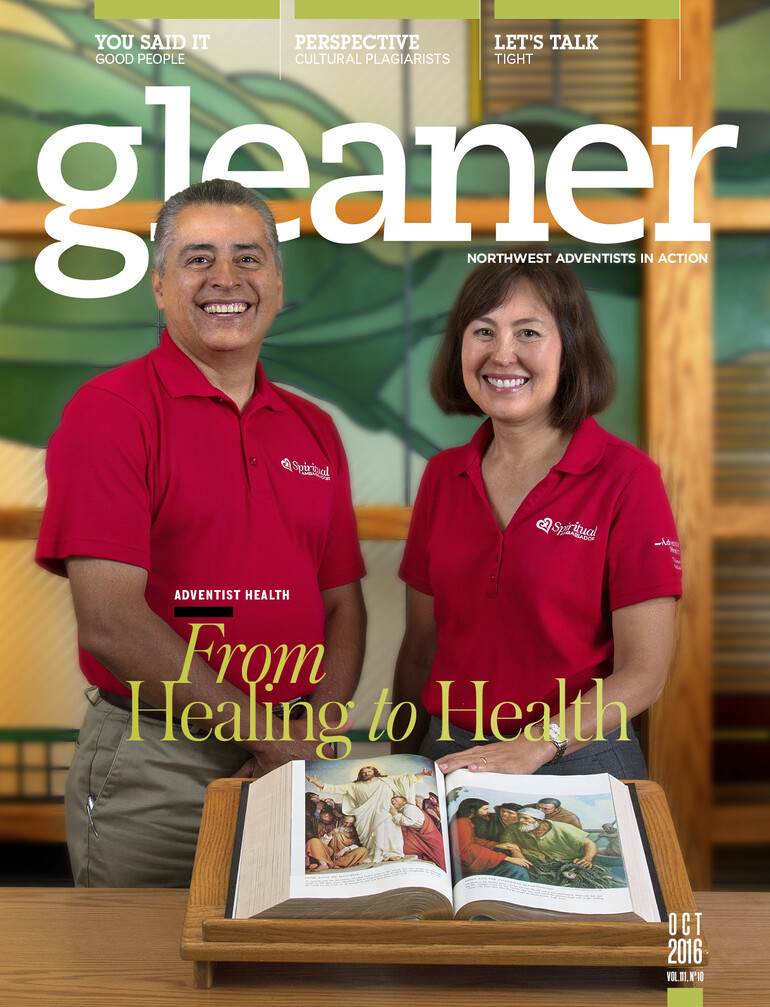One of the most shocking items on the market today can be found in the Christian bookstore. I first encountered this product years ago in the campus bookstore of Andrews University, and its existence bamboozles me to this very day. It’s a card game entitled “Amen.” According to the box it is “the Christian alternative to Uno.” I’m not sure what to write here, so I’ll just continue to share what the box says: “Be the first player to discard all of your cards and say AMEN!” Also worthy of note is the “prayer card” that reverses the order because (and I’m totally not making this up) “prayer changes things.”
So many questions erupted in my mind when I saw this, not the least of which — why? The Christian alternative to Uno? Did Uno need a Christian alternative? I guess people get competitive, and the prayer card kind of takes that away because how can you be mad at someone for playing the prayer card? "Argh! Prayer … well … I guess … good for you.”
It’s not just Uno. We have YouTube and GodTube, Netflix and Pureflix, Superman and Bible Man (still not kidding), Facebook and Faithbook, even mints and Testamints.
It reminds me of growing up Adventist and trying to spiritualize games to make them Sabbath-appropriate. Instead of hide and go seek, we played Saul and David. We didn’t go tubing down the river; we played “Moses in the Bulrushes.” Okay you baby Moseses, get into your large circular rubber basket and float down the Nile!
Desperate times.
We have created Christian copies of almost everything: Bible Yahtzee, Bible Pictionary, Bible Bowl, Bible tag, Christian rap, Christian rock, Christian T-shirts, Christian cards, Christian romance novels, Christian movies … and so much more.
Now, before you get too excited and protest because you love Bible Pictionary and it changed your life, let me point out that copying isn’t always a bad thing and to some degree can never be avoided. Each of us, in whatever cultural spheres we find ourselves, stand on the thoughts, actions and inventions of those who have gone before us. As Solomon said, “there’s nothing new under the sun” (Eccl. 1:9), and not everything under the sun is bad. There’s lots of amazing culture worthy of emulation such as exercise, Indian food, travel ... and Indian food.
It’s wonderful to have studying, driving, smiling, hugging, kissing and cooking … Indian food, naturally. These are all wonderful things Christians can embrace. Not to mention, when carefully done, our imitation becomes a way to honor, remember and improve upon culture. Think about Civil War reenactments, historic villages, taking buttons and turning them into touch screens, and changing scrolls into books.
Recently Netflix released a series called Stranger Things that pays homage to 1980s Spielberg films — not the same story but the aesthetics (music, filters, etc.). The series isn’t ripping him off, but paying respect to a particular style of filmmaking.
Solomon’s observation is true in principal, but not in application; there are definitely new things. Think of what would happen if you brought your iPad to Salem, Mass., in the late 1600s. There’s always new technology, violence, romance, entertainment — but we invent new ways of expressing those realities in culture. The problem is many Christians often take a posture of appropriating and copying the specific application and acting like we have created something new that will transform the culture.
We’ve become cultural plagiarists who believe appropriating and copying cultural artifacts is what makes us faithful Christians living in the world, while at the same time espousing the same values of the surrounding cultures even as we live in our Christian subculture. Researchers such as Barna, Kinnaman, Lyons and PEW consistently reveal that Christians live virtually the same lifestyle as non-Christians; we drink, divorce, lust, overwork, meltdown and stress out — but hey, at least we have Biblopoly and Amen, right?
Rom. 12:2 challenges us not to be conformed to the world, but transformed by Jesus — so that we can transform the cultures around us, not entertain ourselves with subcultural knock offs. Our values, such as rest, grace and forgiveness, stand in stark contrast to the frenetic, unforgiving, angst-ridden world we live in. What inventions can we create that help all of humanity, not just Christians?
In the beginning, God created man and woman in His image, unique from the rest of creation. This reality is affirmed throughout Scripture. Ps. 139:14 says we are fearfully and wonderfully made, 2 Cor. 5:17 states that “if anyone is in Christ, he or she is a NEW creature,” and Jesus says, “People don’t light a lamp and put it under a bowl [or hide it in a subculture], instead they put it on its stand, and it gives life to everyone in the house. In the same way, let your light shine before others, that they may see your original good deeds and glorify your Father in heaven” (Matt. 5:15). Let’s be creative not derivative.











